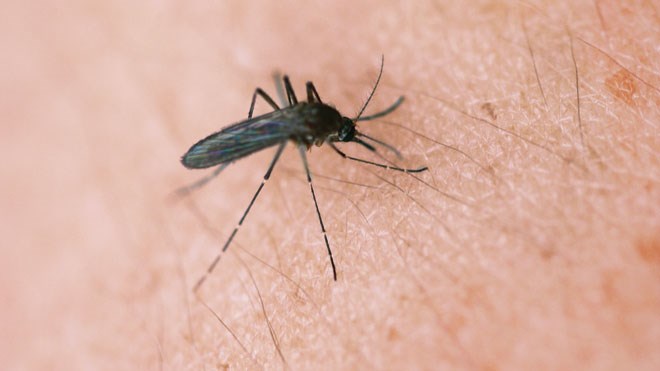They may buzz and bother, but the potential for being infected with West Nile virus (WNV) from a mosquito remains an important reason to avoid being bitten, warns the Sudbury and District Health Unit.
Everyone is at risk and precautions are needed to protect yourself and your family from WNV.
The health unit sets traps to identify the presence of mosquito species that are capable of spreading WNV and to determine if they are carrying the virus. This information is used to estimate the risk of transmission of the WNV to humans.
The SDHU will begin trapping mosquitoes in June for the 2014 surveillance season.
In Ontario, WNV has been found in birds, mosquitoes, horses and humans. Last year, there were more than 50 confirmed human cases of WNV in Ontario. The health unit reported its first and only case of human WNV in 2006.
West Nile virus normally causes only mild illness in humans. Severe complications, including meningitis and encephalitis, are also possible, particularly in people over 50 years of age, and among those who have weakened immune systems.
Whether you are in your backyard, exploring local trails, or vacationing, it’s important to protect yourself and your family from mosquito bites.
Here’s how:
-Use an insect repellent.
-If possible, stay indoors from dusk to dawn when mosquitoes are most active.
-Wear light-coloured clothing, including long sleeves, long pants, socks, and a hat whenever you are outdoors.
-Check all window and door screens in your home to ensure that there are no tears or holes for mosquitoes to get through.
Mosquitoes need only a small amount of calm, standing water to lay their eggs and for larvae to hatch. Change or remove standing water once a week from the following areas that can hold water: bird baths, old tires, containers, barrels flower pot saucers, swimming pool covers, wading pools, clogged gutters, eavestroughs and unused children’s toys.
For information about West Nile virus, visit www.sdhu.com or call 705-522-9200, toll-free 1-866-522-9200.
Join Sudbury.com+
- Messages
- Post a Listing
- Your Listings
- Your Profile
- Your Subscriptions
- Your Likes
- Your Business
- Support Local News
- Payment History
Sudbury.com+ members
Already a +member?
Not a +member?
Sign up for a Sudbury.com+ account for instant access to upcoming contests, local offers, auctions and so much more.
